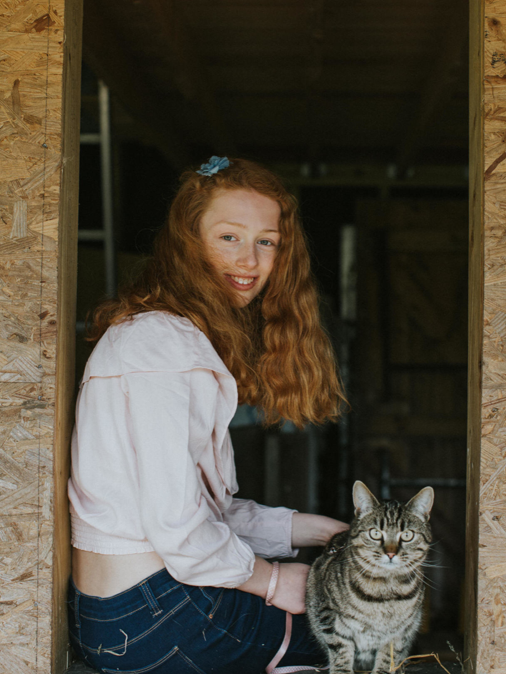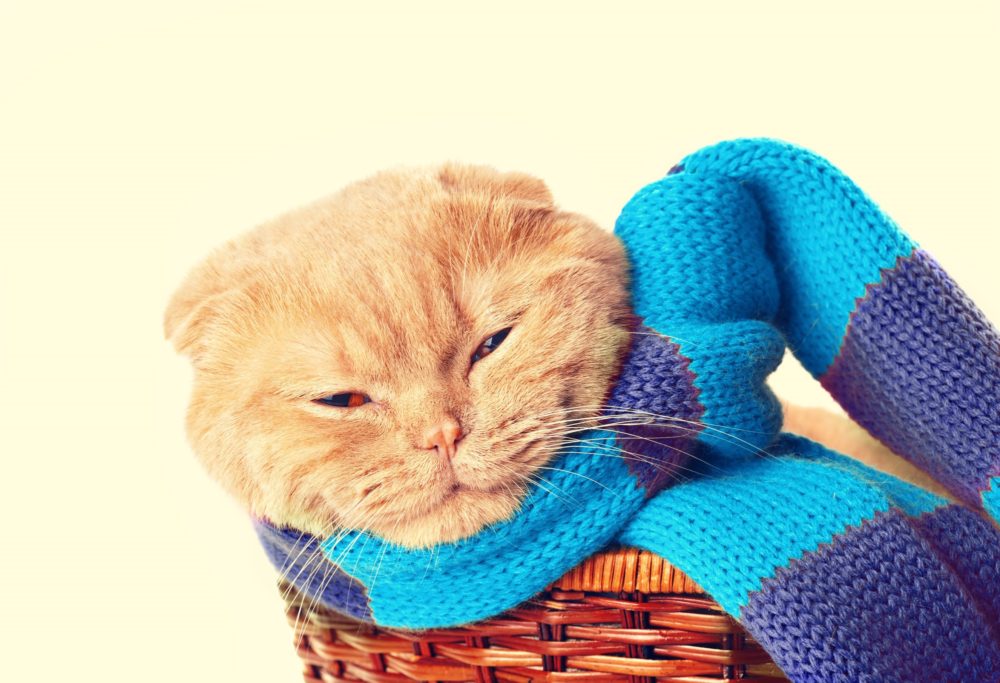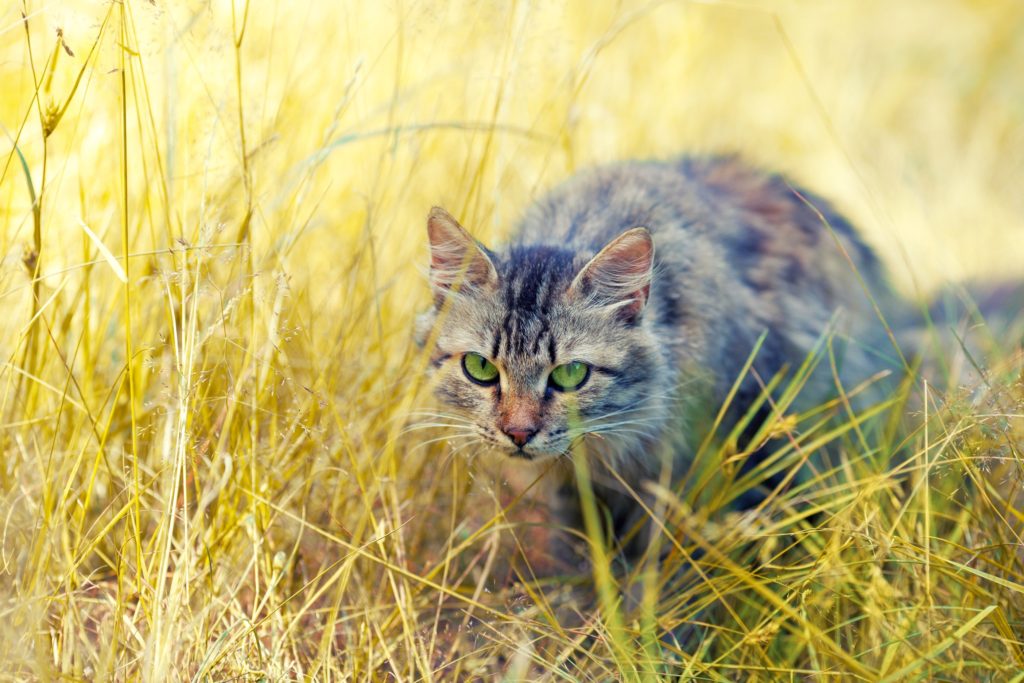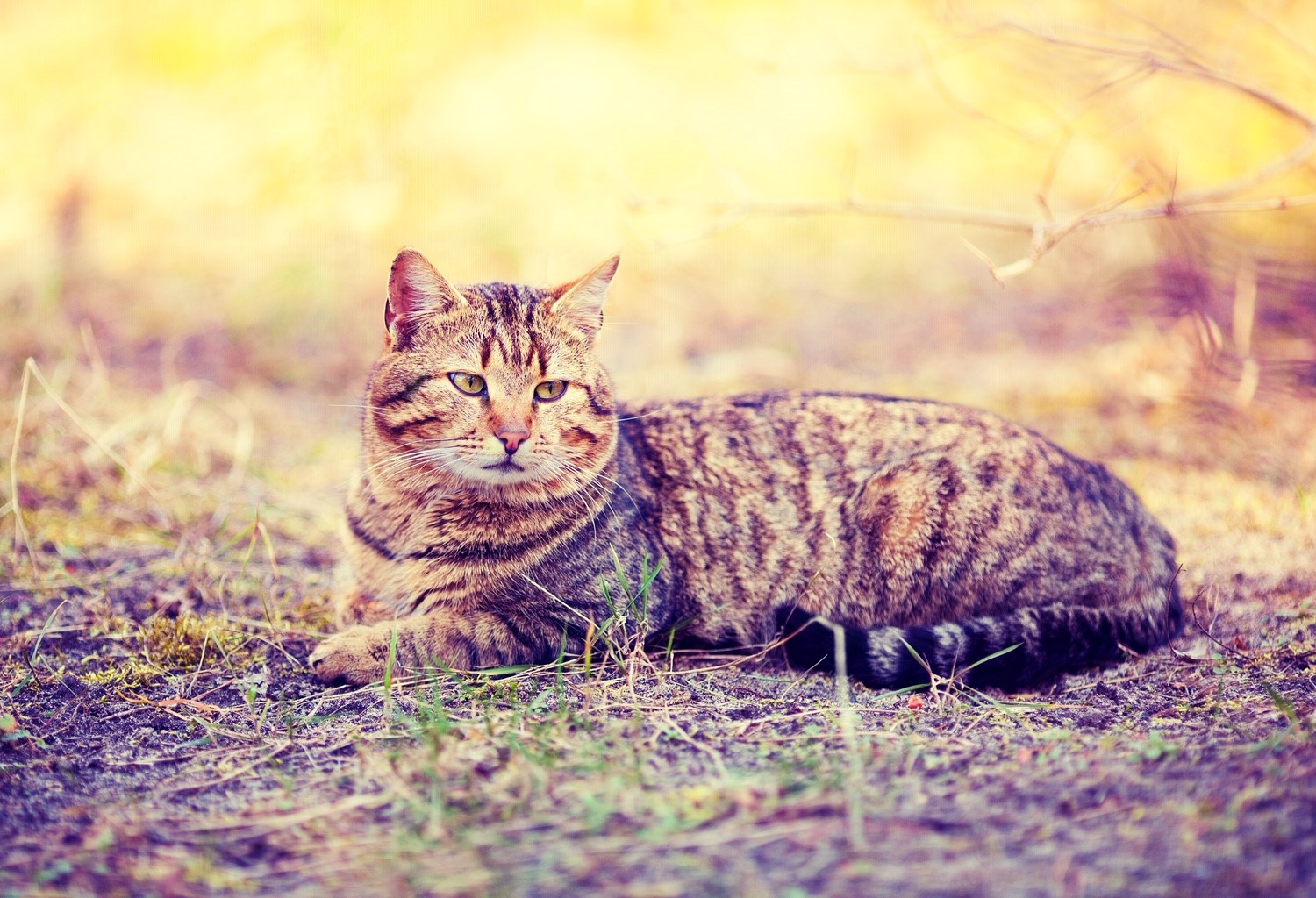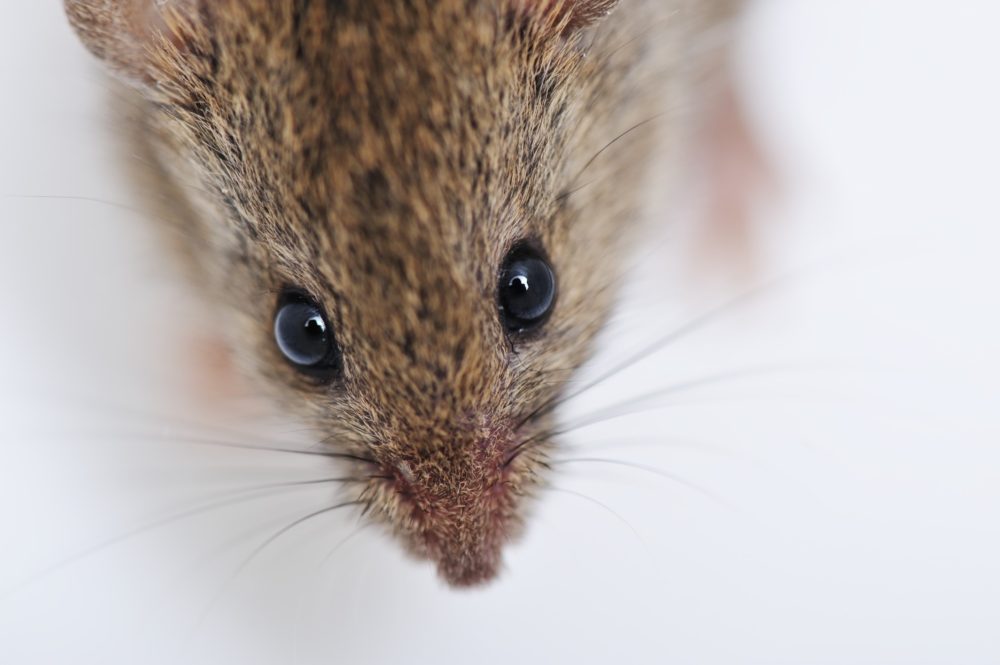
Do cats keep rats away? Do cats hunt rats?
Many cats are excellent mousers, but opinions seem very split as to whether cats will hunt rats, and whether or not their existence will simply keep rats at bay. As we peek into the history of our cats as rat catchers, there is no doubt that cats do have the abilities to catch rats and keep their population numbers under control. But can the same be said for today’s cats?
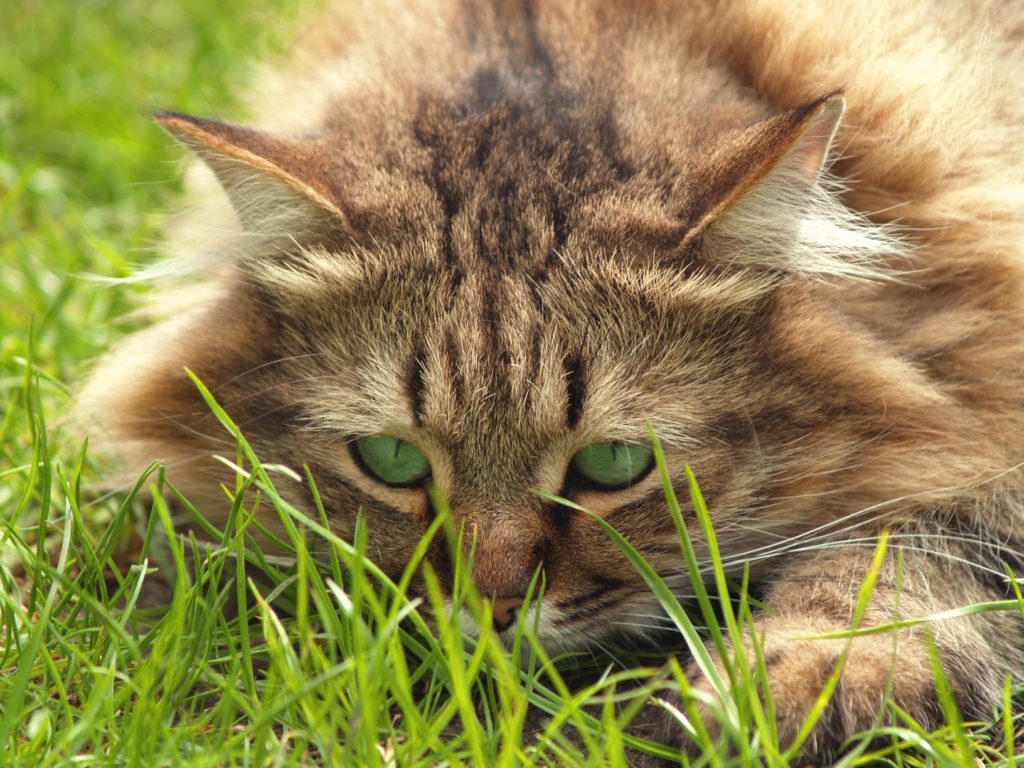
Do cats keep rats away?
One bizarre tradition noted in ancient times to keep rats at bay was to seal dead cats in walls of homes. It was believed rats would stay away from the property and bring good luck. This tradition is thankfully not something that we have continued to do but it does reflect ancient beliefs that cats did keep rats away. If the presence of a cat did simply keep rats away, then why do pest control companies so often report that a rat-infested home can also be a home where a cat resides? Anywhere that has food and water openly accessible (as we do with our pets) does run the risk of attracting rodents. It seems ironic, but plausible, that owning a cat can indeed increase the risk of attracting rats! Merely owning a cat is unlikely to keep rats away.
Do cats hunt rats?
Cats are natural hunters. Before cats were domesticated, the skill of hunting was a means of survival. But even a well fed, happy domesticated cat will still have the instinct to hunt. The thrill of the chase, the satisfaction of the catch and merely playing and toying with the hunted prey is a natural part of their ancestral make up. Cats will usually hunt smaller prey such as mice, voles, birds etc. Anything larger, including a large rat, can be frightening to a cat. Rats can range in size from a few inches long to a massive 10 inches long. There are reports that rats in some areas are bigger and fatter than previously recorded, indeed, some can be nearly the same size as a small cat!
And of course, each cat is different. Even within the same breeds, the personality of cats can vary. Whilst one cat can be brave enough to hunt and tackle the largest of rats, there will be the other personality extreme where the cat will not even chase a fly. Cats will hunt rats, but it is not a guarantee. Feral cats and farm cats are generally better at catching rats.
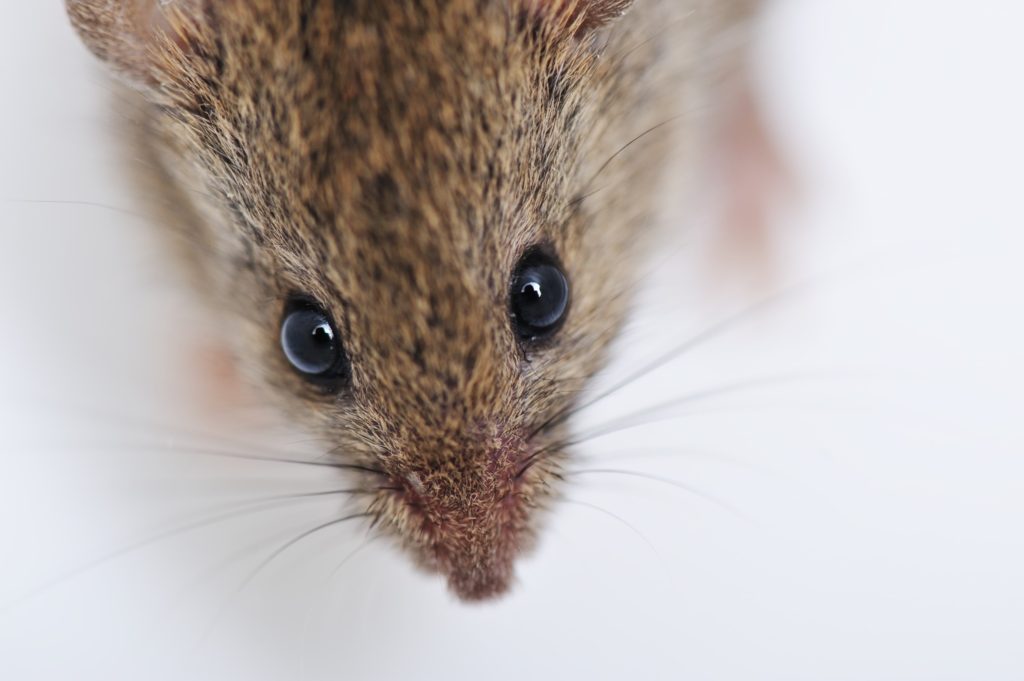
Some authorities are however confident that cats can hunt and catch rats. This is demonstrated with the introduction of schemes in various US cities where they are using cats to tackle rat numbers. The ‘Blue Collar Cats’ program in Washington DC, run by the Humane Rescue Alliance takes stray, feral cats that end up in its care, spays and neuters them, and then matches them to businesses or homes to catch and deter unwanted rodents. A similar program was introduced in Chicago called ‘Cats at Work’. The Cats at Work Project is linked to the Tree House Community Cats TNR Program. This program has seen over 800 Tree House “working cats” placed successfully in private city and suburban backyards, dozens of barns, and at condo buildings, factories, warehouses, and breweries. Those who took part in the program by “adopting” a working cat reported “an immediate impact on the rodent population and a near end to their rodent problem within a few weeks of welcoming their cats”.
The history of cats as rat catchers
Historically, cats have been recognized as excellent rat catchers. This was the case particularly on ships, on farms and in factories. It is believed cats were first domesticated around 7500BC for the purpose of protecting stocks of grains from rats and mice. These cats became known as farm cats or barn cats.
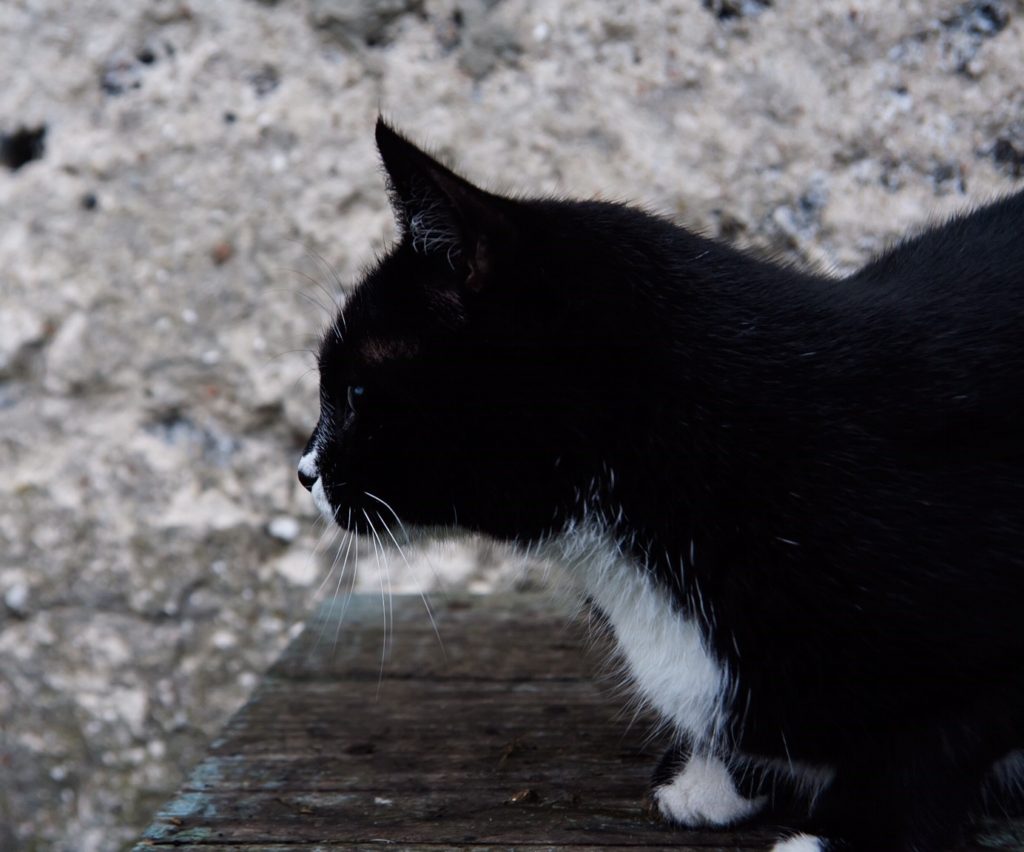
Farm / Barn Cats
Farm cats, although domesticated, live outdoors usually in barns and outbuildings. Their main role is to keep levels of vermin under control. Mice and rats would eat and contaminate grain crops. These crops were critical for the farmer’s livelihood and were grown for use to make food for humans. Even today, many farms still have a cat on the premises to catch mice and rats.
Ship cats
Most ships had a cat on board in times gone by. Cats were a symbol of good luck on board a ship and many sailors would refuse to sail without a cat on board. They believed that cats could predict the weather and sense impending storms. (See our article ‘Can cats sense a storm’) They were also key in controlling rodents. Rats could cause much damage to ships by gnawing rope and wood, damaging cargo and eating the food supplies of the crew. They also carried disease and in these ancient times, rats’ fleas were the main carriers of the Black death plague.
There was one particular cat, Simon, who became famous for becoming a supreme rat catcher. Simon joined the British warship HMS Amethyst as a young kitten in 1947. On their way to China, the ship was attached on the Yangtze river and the captain and several crew members were killed. Simon was also injured badly but to the crew’s amazement he survived. The ship was now stranded behind enemy lines in a hot humid country and rats became an increasing problem on board the ship. Despite being injured and not fully recovered, Simon put his hunting skills into action and was catching at least one rat a day. When Simon wasn’t busy killing rats, he would visit the injured soldiers in their beds. Indeed, his daily visits became very much anticipated and a real morale booster. After three months, with conditions becoming dire, the ship and her crew made a risky but successful escape. Simon was awarded the PDSA Dickin Medal, which was awarded to animals for bravery in wartime. He was, and still is, the only cat ever to receive this award. The book ‘Simon Ships Out’ by Jacky Donovan is based on the journey of this remarkable cat.
Other industries
Many other industries have also employed cats for the purpose of catching rats;
- The British Museum in London had a group of stray cats residing in and around the museum in the 1950’s and were successful in keeping rats and mice colonies under control.
- Since the opening of Disneyland, California in the early 50’s cats have played a key role in catching vermin. As dusk would fall, feral cats would head to the theme park for a night of hunting prey.
- Back in the ancient times when the Black Death threatened the existence of many cities, cats were key in killing rats. History state that the Italian city of Venice believe that cats saved this city from the Black Death.
- Distilleries and wineries have historically adopted cats to control numbers of mice and rats.
- During World War Two when the city of Leningard was under siege, rats were a huge threat to the city’s food supplies. The Red Army let 5,000 cats into the city to simply sort the rats out and protect the resident’s food stocks.
- Even the prime minister’s home, number 10 Downing Street, London, have been known to have many a cat residing there over the years for the purpose of keeping mice and rats at bay.
Which cat breeds are best for catching rats?
In general, there are some breeds of cats which are more inclined to hint rats than others. These breeds include:
- Maine Coons
- Siamese
- Americal Shorthairs
- Burmese
- Chartreux
However, a cat’s personality, age, and background will affect their hunting desires and abilities. We also established earlier that feral, semi-feral and barn cats are also likely to be better hunters.
Conclusion
There are no hard and fast rules or guarantees that a cat will hunt rats, or even that a cat’s presence will keep rats at bay. It is clear that both history, and present day programs, show that cats can indeed hunt rats. However, rat control should never be the sole reason to become a cat owner. It may indeed become a perk if it transpires that your cat is a great hunter but that’s all it should become. Cats need loving homes and great care from their owners and families. Please seek the advice of a professional pest control if you have any concerns regarding rats.
Other articles you may find of interest:
Can cats get fleas from mice? Homeopathic & natural remedies for cat fleas
